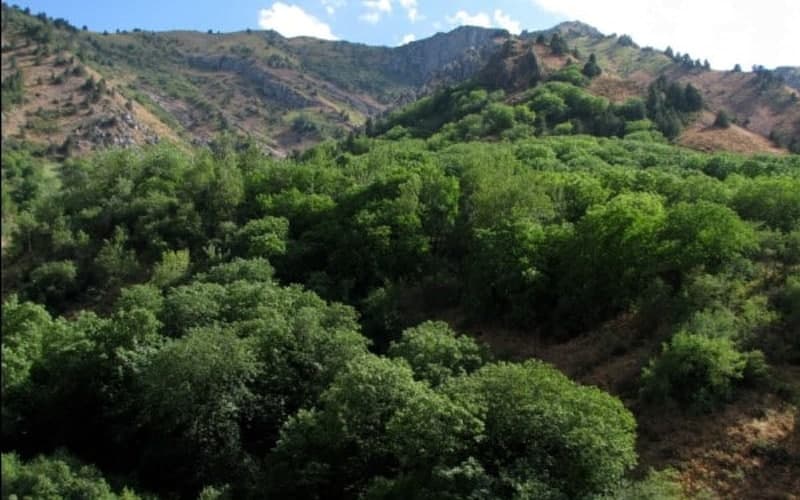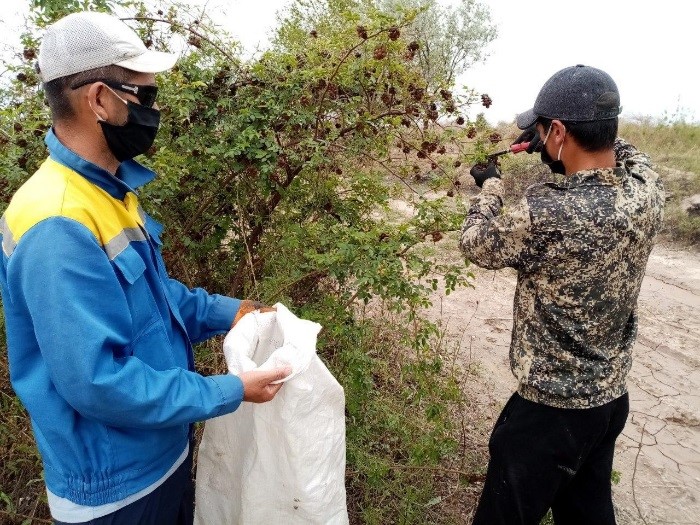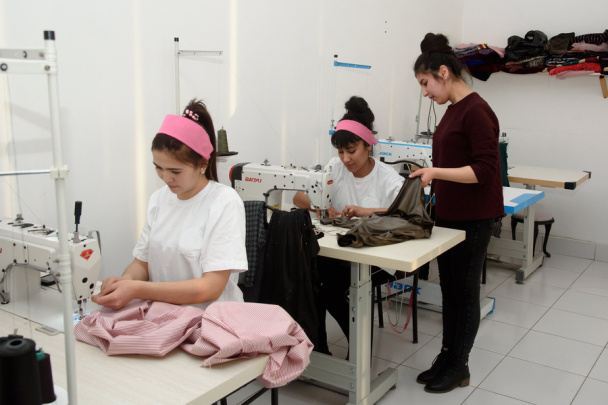The Burchmulla forest of Tashkent region is located on the foothills of the Western Tien Shan, with natural conditions favorable for the growth of more than 70 tree and 80 shrub species. Nevertheless, if prompt measures are not applied to preserve this forest’s beauty, it is likely that insect pests will destroy it. According to experts, such pests can cause fruit and foliage losses of up to 40 to 45 percent.

Previously smoke bombs were used to fight tree pests and forest diseases. While this method showed good efficiency, it turned out to be inapplicable for environmental reasons because it destroyed pests and beneficial insects alike. To create a means of combating “enemies” of the forest, a joint solution was planned with the “Sustainable use of natural resources and forest management in key mountain regions important for globally significant biodiversity” project of GEF, UNDP and the Government of Uzbekistan.

Recently scientists of the Tashkent State Agrarian University conducted investigations into what equipment would be needed by a biological laboratory, whose establishment would help to tackle the persistent problem of pest insects. Training seminars have been held for the laboratory’s future personnel, while necessary equipment and implements have been purchased on a tender basis within the project framework. Additionally, a two-storey building in Gazalkent city has been allocated to be the laboratory’s premises.
These efforts have made it possible to create a bio-laboratory that can help preserve 10,000 hectares of forest, through undertaking entomophagy (biological tree protection) to combat pests of tree and shrub plantations. This facility will be used in developing laboratorian entomophagy which will devour pests in forests and reduce their numbers. Such “killers” will be introduced into forests, and into the orchards, farms and gardens of local residents, making it possible to improve conditions in highland forests, fruit and walnut orchards, and forest plantations. Experts believe that the work of bio-laboratories can help control numbers of both beneficial and pest insects in forests.
The forests of the Bostanlyk district are expansive, covering more than 44,200 hectares and containing orchards and fruit forests. It is clear that the bio-laboratory will benefit the associated forestry, farms, dekhkan and household enterprises, for whom the use of entomophages against pests is necessary. The experience attained by the laboratory will be applied across other national forestry sectors as well.
The “Sustainable use of natural resources and forest management in key mountain regions important for globally significant biodiversity” project of GEF, UNDP and the Government of Uzbekistan has been operating since 2017. The extensive initiatives of this project have assisted in ensuring the conservation and sustainable use of the natural resources of Uzbekistan’s biodiversity-rich, highland ecosystems.





